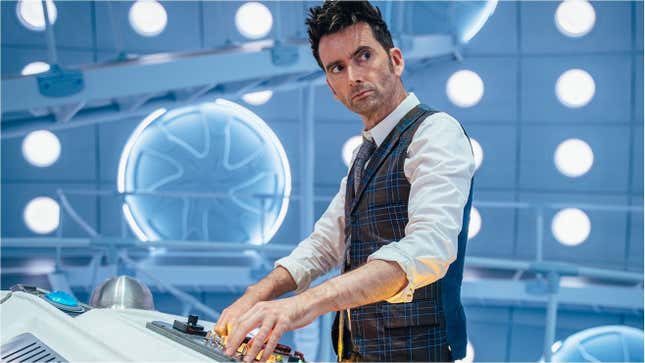David Tennant’s Return to Doctor Who Was So Much Hotter This Time Around
Tennant returned to celebrate the show's 60th anniversary and, I cannot emphasize this enough, looked almost painfully attractive doing it.
EntertainmentTV

Doctor Who turned 60 years old in November and celebrated the way most fans would if given the choice: with copious application of David Tennant. The most popular Doctor of the franchise’s modern era, Tennant’s fast-talking, incredibly charming Time Lord thrilled fans around the world as he fought to save the universe and generally had a great time doing it. From Tennant’s very first speech, in which Ten tries to sort out what sort of man his Doctor will be by quoting The Lion King, his performance is full of equal parts manic glee and steel.
Tennant’s third time in the TARDIS is not just a delightful bit of nostalgia—he previously reprised the role of Ten during the 50th-anniversary outing back in 2013—but a celebration that has something legitimately important to say about who the Doctor is now as a character. That he’s somehow even hotter than before is just the icing on the cake.
Over the years since his first regeneration, Tennant has gone on to star in many other popular genre properties. But for most of us, no matter how much we might love him as Crowley on Good Omens or the voice of Huyang on Ahsoka, Tennant will simply always be the Doctor—and a foundational reason behind the long-running show’s current success. Tennant, himself a Whovian since childhood, was a natural ambassador for the show, with a genuine and obvious love of both the character of the Doctor and the themes at the heart of the series. (And that was before he married into a family of other Doctor Who alums.)
-

-

-

-

-

-

-

-

-

-

-

-

-

-

-

-

-

-

-

-

-

-

-

-

-

-

-

-

-

-

-

-

-

-

-

-

-

-

-

-








































